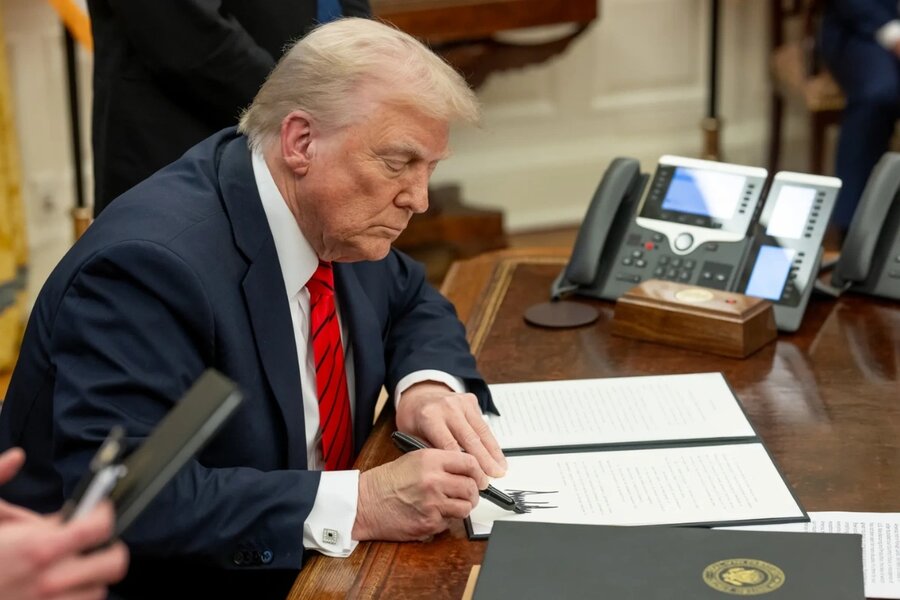President Donald Trump signed a bill on July 24 to claw back $9 billion in federal spending.
Ahead of the signing, Trump said on Truth Social that the House’s approval of the bill was “BIG.”
It rescinds $7.9 billion in spending under the now-defunct U.S. Agency for International Development, whose responsibilities have been folded into the State Department.
The bill was initially set to rescind $9.4 billion, but $400 million was stripped out. That cut would have removed funding for PEPFAR, a State Department initiative that combats HIV and AIDS abroad.
The bill also eliminates $1.1 billion for the Corporation for Public Broadcasting, which supports National Public Radio (NPR) and the Public Broadcasting Service (PBS), both of which have been accused by conservative critics and the Trump administration of liberal bias.
This does not mean it is the end of either NPR or PBS, however.
“The biggest impact will be that the shows with low-audience ratings will get cut,” conservative pundit Jake Novak said.
“For all the shrieking about Sesame Street, Masterpiece Theatre, or ‘Wait, Wait, Don’t Tell Me’ getting canceled, those shows have tremendous private backing and the audience will be (and in many cases already is) paying for them to live on.”
Additionally, he said: “More private deals will be struck with outfits like HBO (which already funds and airs Sesame Street) and Netflix for existing PBS shows. I believe Sirius radio will get some kind of deal for some NPR shows as well.”
However, “the cuts will primarily hurt stations in rural areas,” Thomas Patterson, Bradlee Professor of Government and the Press at Harvard University, said.
“They have long relied on government funding because their smaller population base limited how much they could raise from viewer and listener contributions,” he said.
There is a short-term solution, according to Patterson.
“It’s conceivable that public media outlets might develop some form of revenue sharing whereby stations in larger markets help those in smaller markets,” he said. “However, this would only be a short-term solution in that the larger-market stations also face funding challenges, though less severe.”
Meanwhile, he said, “the long-term solution would likely require a return to power of the Democrats and a willingness on their part to restore the funding.”
Share your thoughts by scrolling down to leave a comment.













